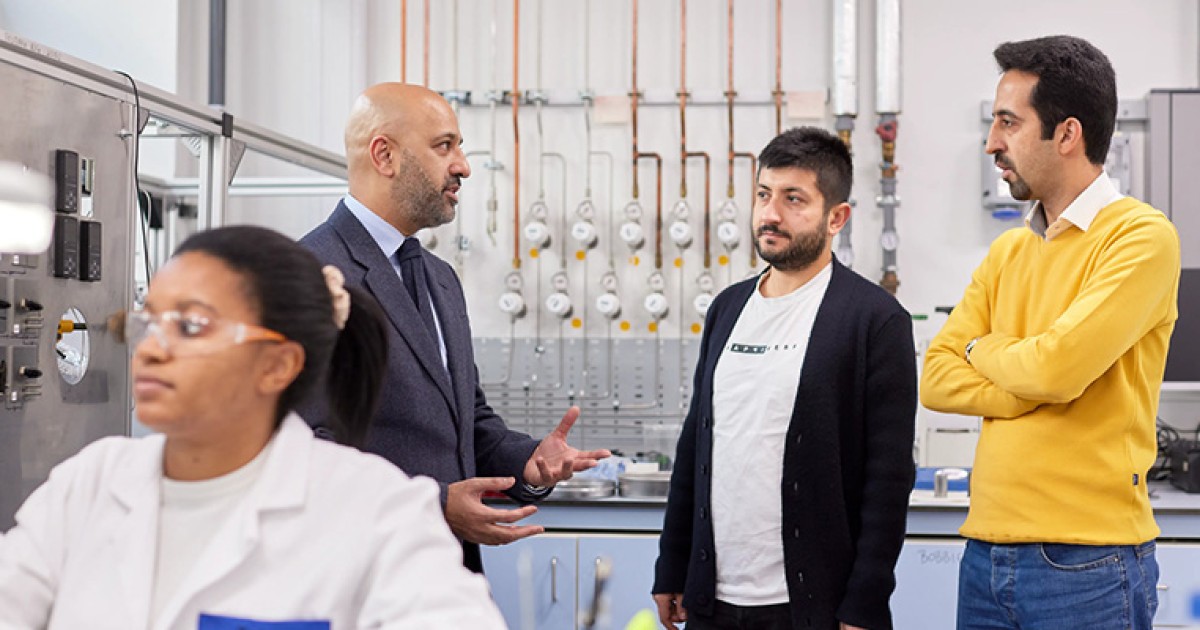Tackling regulation barriers key to unlocking full potential of hydrogen in UK’s net zero ambitions, says new report

Bold and joined-up action is needed to unlock the full potential of hydrogen fuel as a large-scale clean energy source, according to a new report published by experts.
Hydrogen holds immense potential as a clean energy solution, but large-scale adoption faces hurdles with policy uncertainty, regulatory constraints, and a lack of cross-sector coordination slowing down progress, experts say.
A new report, Harnessing Hydrogen, published by Manchester Metropolitan University and law firm Addleshaw Goddard, calls for policy clarity, cross-sector collaboration, and tailored regulation and infrastructure to overcome the challenges facing the adoption of hydrogen across the UK.
Amer Gaffar, Director of Manchester Fuel Cell Innovation Centre at Manchester Metropolitan University, said: “Through the Greater Manchester Electrochemical Hydrogen Cluster (GMEHC), Manchester Met has already driven collaboration between academia, industry, and government to accelerate the development and adoption of electrochemical hydrogen technologies.
“The initiative has created a supportive environment for innovation, emphasising scientific research, market development, and policy conditions necessary for rapid deployment.
“But we’re now at a crucial moment if we are to realise the full potential of this solution – it is time for bold and joined-up action on a national scale.”
The new report makes a series of recommendations aimed at clarifying and delivering upon the potential of hydrogen to fuel a net zero future for the UK.
This includes a call for a clear illustration in the UK’s Hydrogen Strategy of the proposed journey, from policy through to innovation and deployment of the country’s hydrogen ambitions at a national level.
Further collaborative working between sectors and delivery of hydrogen-specific skills, knowledge, infrastructure and regulation that are needed to meet these ambitions are also recommended.
Manchester Met has been a success by fostering co-operation between local authorities in their hydrogen strategy. The Manchester Fuel Cell Innovation Centre at the University has been visited by international delegations and has been established for years as hub for research and hydrogen innovation.
The Harnessing Hydrogen report was developed by Amer Gaffar, Director of Manchester Fuel Cell Innovation Centre at Manchester Met, and Dr John Pearson, Senior Lecturer in Environmental Law and Property Law at Manchester Met, in partnership with Addleshaw Goddard.




